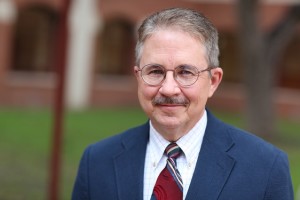A Baptist theology professor said in a blog March 7 that authentic Christians must oppose the death penalty, even if it leads to division in the church.
Roger Olson, professor of theology at George W. Truett Theological Seminary, said there are plenty of secular reasons to abolish capital punishment, but Christians should be especially opposed to the death penalty because of their theology.
“True Christians believe that either 1.) Christ died for everyone (Arminianism), or 2.) Christ died for his chosen elect and we do not know who they are (Calvinism),” Olson said. “In both cases, Christians believe that every individual human being might be someone chosen by God for his salvation and for his service.”
“Only God knows with certainty whom he can use for his service, by whatever means (including intercessory prayer), and who still has a chance to repent, believe (trust in Christ) and be saved,” Olson said. “When we take another human life unnecessarily, we usurp God’s prerogative for that person’s eventual salvation or, if they are already saved, for that person’s future service for the Kingdom of God.”
Olson said where he lives in Texas, many self-identified Christians view the death penalty as “a kind of sacrament” — not in the sense of a true sacrament like baptism or the Lord’s Supper but as “a sign of public virtue, an enactment of justice, a way of demonstrating the livingness of civil religion.”
He said the defense he hears most commonly is the Bible verse from Exodus saying, “An eye for an eye, a tooth for a tooth.”
“I believe this matter is so serious on so many levels that every Christian church ought to take a public stand against the death penalty/capital punishment via consensus resolutions and then restrict church leadership to those who either agree with that stand or are at least still considering it,” Olson said. “Strong supporters of state executions ought not to be considered worthy candidates for church leadership.”
“I believe the Christian reasons for opposing the death penalty are so strong that capital punishment ought to be, as slavery was in the mid-19th century, an issue for a ‘church struggle’ that divides if sadly necessary,” he said. “At the very least, Christian pastors and other leaders ought to preach against capital punishment from their pulpits and in their newsletters.”



